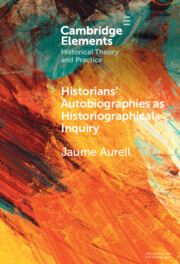Refine search
Actions for selected content:
281 results
Chapter 2 - Narrative
-
- Book:
- The Indian Ocean and the Historical Imagination in Afro-Asian Fiction
- Published online:
- 19 December 2025
- Print publication:
- 31 December 2025, pp 58-93
-
- Chapter
- Export citation
Chapter 4 - Post-Imperial Melancholy in the Long 1970s
- from Part I - The Dream of Imperial Ruins
-
-
- Book:
- The Cambridge Companion to British Utopian Literature and Culture since 1945
- Published online:
- 18 December 2025
- Print publication:
- 31 December 2025, pp 73-94
-
- Chapter
- Export citation
Introduction
-
- Book:
- The Indian Ocean and the Historical Imagination in Afro-Asian Fiction
- Published online:
- 19 December 2025
- Print publication:
- 31 December 2025, pp 1-26
-
- Chapter
- Export citation
Coda
-
- Book:
- The Indian Ocean and the Historical Imagination in Afro-Asian Fiction
- Published online:
- 19 December 2025
- Print publication:
- 31 December 2025, pp 207-210
-
- Chapter
- Export citation

The Indian Ocean and the Historical Imagination in Afro-Asian Fiction
-
- Published online:
- 19 December 2025
- Print publication:
- 31 December 2025
Conclusion
-
- Book:
- Nostalgia and National Identity in the British and Irish Modernist Epic
- Published online:
- 27 November 2025
- Print publication:
- 18 December 2025, pp 148-166
-
- Chapter
- Export citation
5 - Anglophone Epics and Ruin Poetry in Eighteenth-Century India
- from Part I - Early Intimations and Literary Genres: 1500–1800
-
-
- Book:
- The Cambridge Companion to British Literature and Empire
- Published online:
- 20 November 2025
- Print publication:
- 04 December 2025, pp 77-92
-
- Chapter
- Export citation
Chapter 9 - Partition of India
- from Part II - Separate Paths
-
- Book:
- Historical Trauma
- Published online:
- 20 November 2025
- Print publication:
- 04 December 2025, pp 254-268
-
- Chapter
- Export citation
Conclusion
-
- Book:
- Socialist De-Colony
- Published online:
- 10 November 2025
- Print publication:
- 20 November 2025, pp 266-288
-
- Chapter
-
- You have access
- Open access
- HTML
- Export citation
Epilogue
- from Part II - The Coal Regime during the Boom Years and an Environment at Stake
-
- Book:
- Vietnam's Coal Frontier
- Published online:
- 25 October 2025
- Print publication:
- 13 November 2025, pp 285-298
-
- Chapter
- Export citation
Chapter 19 - Algiers as a “Realm” of Memory in Contemporary Algerian Postcolonial Literature of French Expression
- from Part III - Maps
-
-
- Book:
- African Literature in Transition
- Published online:
- 31 October 2025
- Print publication:
- 13 November 2025, pp 296-310
-
- Chapter
- Export citation
Building Legacy: Sports, Kasarani Stadium, and Moi’s Transnational Populist Politics, 1978–87
-
- Journal:
- The Journal of African History / Volume 66 / 2025
- Published online by Cambridge University Press:
- 12 November 2025, e26
-
- Article
-
- You have access
- Open access
- HTML
- Export citation
Resurrecting the African Independent Pentecostal Church: Land, Education, and the Politics of Reconciliation during Kenya’s Decolonisation, 1952–69
-
- Journal:
- The Journal of African History / Volume 66 / 2025
- Published online by Cambridge University Press:
- 01 September 2025, e12
-
- Article
-
- You have access
- Open access
- HTML
- Export citation
Chapter 26 - Realism and the South Asian Novel
- from Part IV - Locations of Realism
-
-
- Book:
- Realism and the Novel
- Published online:
- 05 June 2025
- Print publication:
- 19 June 2025, pp 372-388
-
- Chapter
- Export citation
‘Exhibit Asia’ and its Deconstruction through Collaborative Online Learning
- Part of
-
- Journal:
- Transactions of the Royal Historical Society / Volume 3 / December 2025
- Published online by Cambridge University Press:
- 04 March 2025, pp. 343-362
- Print publication:
- December 2025
-
- Article
-
- You have access
- Open access
- HTML
- Export citation
More of a Question than a Comment: A Response to Modernism, Empire, World Literature, by Joe Cleary
-
- Journal:
- Cambridge Journal of Postcolonial Literary Inquiry / Volume 11 / Issue 3 / September 2024
- Published online by Cambridge University Press:
- 20 February 2025, pp. 317-324
-
- Article
-
- You have access
- Open access
- HTML
- Export citation
13 - EMI, Cognitive Capture and Decoloniality
- from Part III - The Politics of English in Education
-
-
- Book:
- Critical English Medium Instruction in Higher Education
- Published online:
- 31 January 2025
- Print publication:
- 06 February 2025, pp 215-231
-
- Chapter
- Export citation
Addressing the concept of total pain in palliative care: A postcolonial South African hospice view
-
- Journal:
- Palliative & Supportive Care / Volume 23 / 2025
- Published online by Cambridge University Press:
- 28 January 2025, e35
-
- Article
-
- You have access
- Open access
- HTML
- Export citation
Chapter 36 - Poetic Legacies post 1950
- from Part VII - Reception and Influence
-
-
- Book:
- Gerard Manley Hopkins in Context
- Published online:
- 16 January 2025
- Print publication:
- 16 January 2025, pp 310-317
-
- Chapter
- Export citation

Historians' Autobiographies as Historiographical Inquiry
- A Global Perspective
-
- Published online:
- 06 January 2025
- Print publication:
- 02 January 2025
-
- Element
- Export citation
